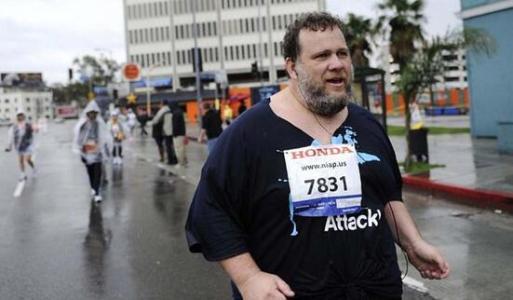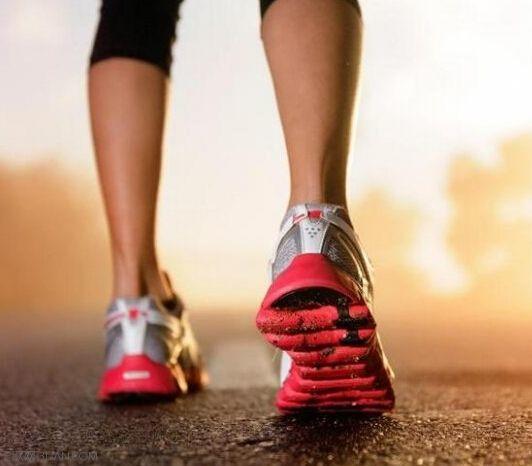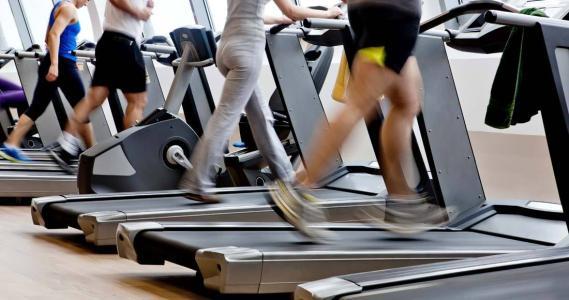How many of these rumors about running have you believed?
Many people have encountered this situation-when they are enthusiastically involved in exercise, they suddenly hear some remarks one day, which makes you doubt the way and effect of the exercise you are currently engaged in, thus making you hesitate and stop.
After running for so many years, we often hear all kinds of strange remarks, such as: running to lose weight or running can’t lose weight? Will running calves thicken? Running hurts your knee? Can you get hurt running on the treadmill? Will running for a long time get old? Does the forefoot land or the heel land? Run to get rid of lactic acid …
As the saying goes, rumors stop with wise men. Today, Xiaobian will play the role of a rumor terminator and take you to identify those rumors related to running ~

What are the most common running rumors?
Does running lose weight or not?
In fact, running is a form of exercise, not a method of exercise. Whether to lose weight or not is determined by the intensity, time and external environment of running. Different running intensities have different effects on weight loss. Generally speaking, it is recognized that the best weight loss project is long-distance aerobic project, such as long-distance running and jogging.

Running for the purpose of losing weight and bodybuilding should last no less than 20 minutes, and the speed should be slower to keep even breathing. A 20-minute slow running can not only exhaust a lot of glycogen in the body, but also use the body fat. And because the slow running is not very intense, it will not make the body too anoxic, so it will help the consumption of fat, thus achieving the purpose of losing weight.
In addition, the running environment is also very important. Generally speaking, running on the hillside and in the wild will consume more calories than running on the treadmill in the gym, because no matter climbing or fighting against wind resistance, it will consume more calories and the better the effect on weight loss will be.
Does running cause the calf to thicken?
First of all, it should be clear that the running engine is the buttocks, not the calves. Muscle hypertrophy requires certain conditions, first of all, androgen should reach a certain level, and secondly, intensity load should reach a certain level. And these two points, most of our runners, especially girls, can’t reach. The reason why the calf looks thick is not too much muscle, but fat accumulation.

Fat reduction is a whole-body process, and there is no such thing as local fat reduction. If you want to brush your fat, you still need aerobic exercise to practice well. Therefore, running will not thicken the calf. On the contrary, if you persist, your calf will become thinner. There are two situations in which the running calf thickens. First, it is caused by congestion after exercise and will recover after rest. Second, the running posture is incorrect, which leads to stimulation of the calf.
Will running hurt your knees very much?
Running causes knees because of incorrect methods, mostly because of excessive running and incorrect posture.Not enough warm-up stretchingCaused by. Previously, researchers conducted a large number of data tests, and the results showed that 20% of runners suffered from arthritis, while 32% of non-runners suffered from arthritis.
So not only the knee injury, but also some other injuries, such as ankle injury or muscle strain, are not caused by the sport of "running", but by improper running techniques.
Is it easier to get hurt when running on a treadmill?
In fact, many times, everyone wronged the treadmill. Various theories of treadmill injury, such as: the body does not move forward, the knee is under great pressure, the track drives running, there is shear force and so on. But the experiment proves that the damage probability of treadmill is the same as that of road running. It’s just that the treadmill is indoors, and without wind resistance, it won’t be as hard to run as it is outdoors.

The longer you run, the better?
Whether for training or weight loss, the longer a single run, the greater the pressure on the body, thus increasing the probability of damage to the body.
Does running affect sexual function?
Researchers have conducted tests before, and the results show that most runners will be more harmonious with their partners in this respect. And running will produce endorphins, which will make people happy and help them get along with the other half. Therefore, this pot must not be carried by our runners!
Does running for a long time make people old?
Exercise itself will make people young, but aerobic exercise will produce free radicals, which will destroy the body’s immune system, so long-term aerobic exercise will make people look old. For a period of time after the competition, athletes feel tired, weak, depressed, don’t want to exercise, and lose the good feeling of their bodies after normal exercise. In fact, excessive free radicals lead to low immunity.
Free radicals, also known as free radicals, refer to groups, ions, atoms or molecules whose outer orbitals contain unpaired electrons. It is active in chemistry and has strong oxidation, which can take away electrons from normal cells and tissues, thus damaging cells and tissues. If it is produced too much or cleared too slowly, the excess free radicals will attack living macromolecules and various organelles, causing various damages to the body at the molecular level, cellular level and tissue and organ level, thus causing various injuries to the body.
Do I have to run after the horse race?
Lactic acid is an acidic substance. During exercise, lactic acid accumulation leads to acidification and fatigue. The increase of lactic acid production during exercise was previously thought to be due to the increase of anaerobic glycolysis caused by hypoxia of exercise muscles. However, studies in recent years show that when the exercise intensity is between 50% and 60% of the maximum oxygen uptake, lactic acid production begins to increase.
The main reason is the lack of oxygen in exercise muscles or the imbalance between glycolysis and aerobic oxidation rates, or both. Lactic acid produced by skeletal muscle during exercise is distributed to various organs of the whole body through cell membrane for metabolism.
Therefore, many people do acid excretion training two to three days after horse racing, and it is not lactic acid, but other metabolites. Lactic acid is eliminated as early as two hours after intensive exercise, and there is no need to wait until the next day to excrete acid.